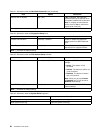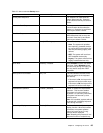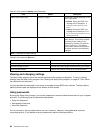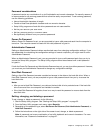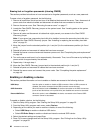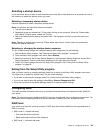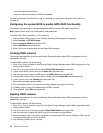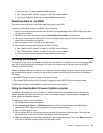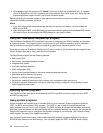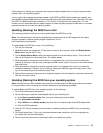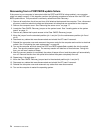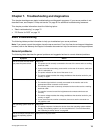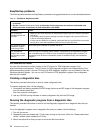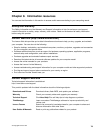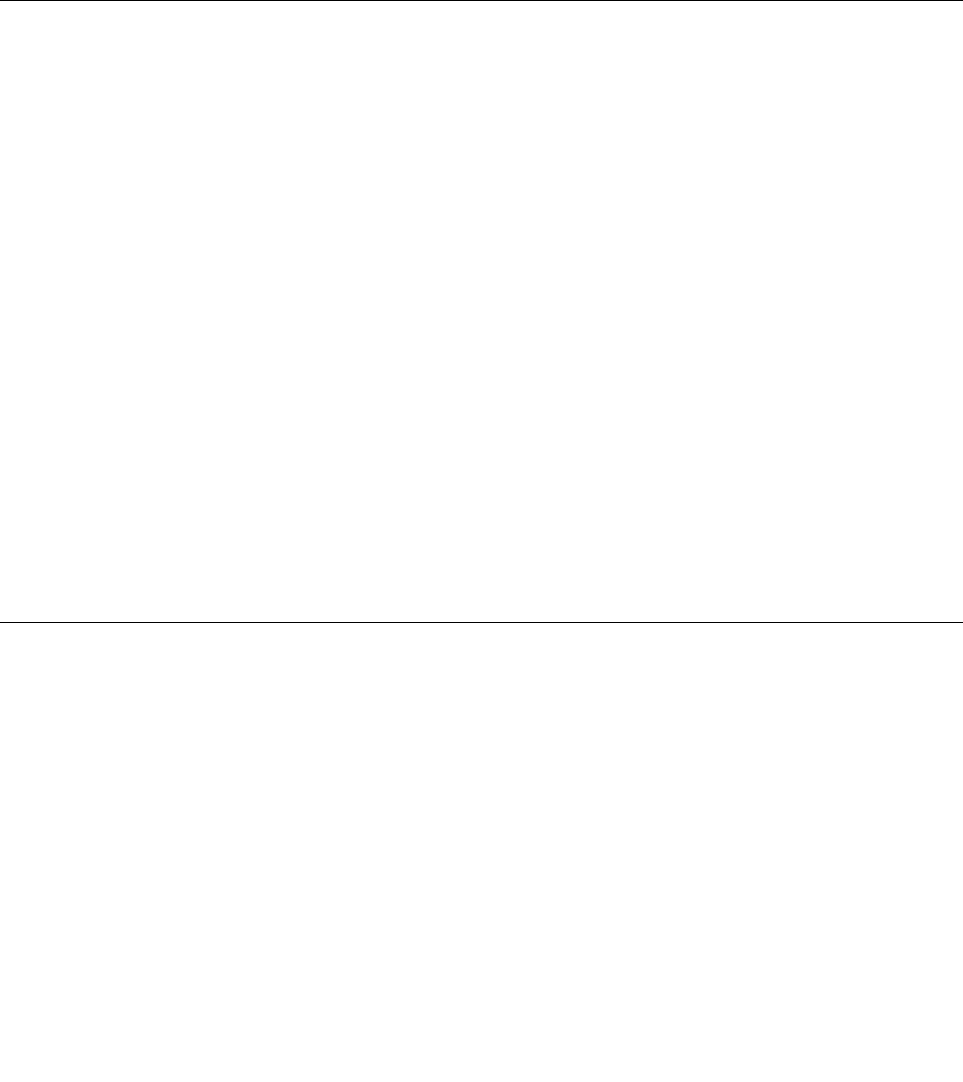
6. Click Apply to begin the updates (click Cancel if you want to abort the updates and exit). All updates
will run to completion, with each updater’s native user interface kept visible to the user. When the User
Interface Application regains control, you will see the results screen.
Before distributing the rmware update to other servers, ensure that your server can restart successfully
without encountering hardware problems.
Notes:
1. If you have changed any hardware (except the hard disk drives) in the server, you must reash the
BIOS and the RDX.
2. After updating the BIOS, all the BIOS settings become the default settings of the updated BIOS version.
You need to check and recongure the BIOS settings for your specic needs.
Using the ThinkServer EasyStartup program
The ThinkServer EasyStartup DVD simplies the process of conguring your RAID controllers and installing
an operating system. The program works in conjunction with your Windows operating-system installation
disc to automate the process of installing the operating systems and associated device drivers.
If you did not receive a ThinkServer EasyStartup DVD with your server, you can download an image from the
Lenovo Support Web site at: http://www.lenovo.com/support.
The EasyStartup program has the following features:
• Self-booting DVD
• Easy-to-use, language-selectable interface
• Integrated help system
• Automatic hardware detection
• RAID conguration utility
• Device drivers provided based on the server model and detected devices
• Selectable partition size and le system
• Support for multiple operating systems
• Installing the operating system and device drivers in an unattended mode to save time
• Creating a reuseable response le that can be used with similarly congured Lenovo servers to make
future installations even faster
Updating system programs
This chapter provides information about updating the POST and BIOS, and how to recover from a POST
and BIOS update failure.
Using system programs
System programs are the basic layer of software built into your computer. System programs include the
POST, the BIOS, and the Setup Utility program. The POST is a set of tests and procedures that are
performed each time you turn on your computer. The BIOS is a layer of software that translates instructions
from other layers of software into electrical signals that the computer hardware can execute. You can use the
Setup Utility program to view or change the conguration settings of your computer. See “Using the Setup
Utility program” on page 53
for detailed information.
Your computer system board has a module called electrically erasable programmable read-only memory
(EEPROM, also referred to as ash memory). You can easily update the POST, the BIOS, and the Setup
72 ThinkServer User Guide



